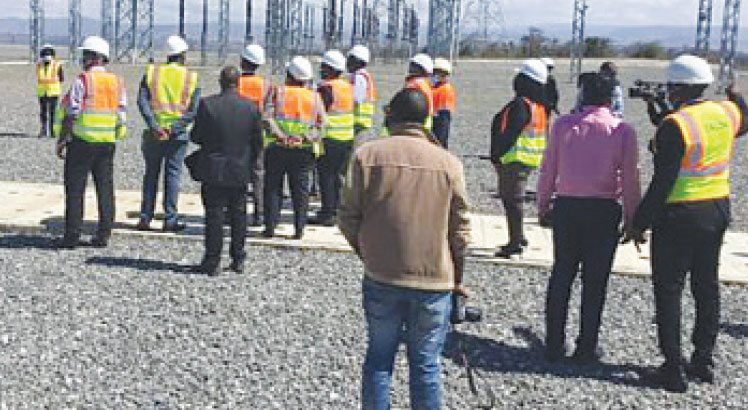Escom upbeat on beating Inter connector deadline
Electricity Supply Corporation of Malawi (Escom) has expressed confidence that it will beat the October 2023 deadline for the rolling out of the Malawi-Mozambique Power Interconnector Project.
The project is designed to connect Mozambique and Malawi power transmission systems to enable both countries to engage in bilateral and regional power trade in the Southern African Power Pool (Sapp), a cooperation of national electricity companies in Southern Africa under the auspices of the 16-member Southern African Development Community.

Speaking during a news conference in Blantyre yesterday to give an update on the project, Escom senior projects manager Alexander Kaitane said the realisation of the project will translate into improved access to electricity supply in the country by 50 megawatts (MW).
He said: “The peak electricity demand will be at 1 860MW by 2030. Yet, currently, Malawi’s installed electricity generation capacity is hovering around 500MW, which is way too low to meet the growing power demand.
“This power interconnection will contribute towards addressing the capacity problem and the economic growth of the region through sustainable power access.”
Kaitane said Covid-19 remains one of the challenges in their efforts to beat the deadline.
He said currently, a contractor for the transmission line is L&T from India while Matambo Sub-Station (Mozambique) upgrade will be done by Sinohydro, a Chinese State-owned hydropower engineering and construction company.
The main undertakings of the project include the construction of a 218-kilometre, 400 kilovolts (kV) high-voltage alternating current transmission line, grid connections and associated infrastructure, including substation works.
In 2019, the World Bank gave Mozambique $42 million (about K34 billion) from the same institution grant while Malawi received $15 million (about K12 billion) as credit towards the project.
In addition to the World Bank funds, Mozambique received a grant of $24 million (about K20 billion) from the Government of Norway Trust Fund which is administered by the World Bank, along with a 20 million euro (about K19 billion) grant from the Germany Government.
Malawi also received 20 million euro (about K19 billion) through a European Union (EU) grant and both the EU and Germany t grants will be administered by Kreditanstalt fur Wiederaufbau (KfW), a German State-owned investment and development bank.
The Government of Malawi, through Escom, has committed $2.5 million (about K2 billion) to the project.
Escom senior projects accountant Joseph Kamwendo said while the currency depreciation could affect Government of Malawi’s funding, financial contributions on the part of the donors will not be affected because the disbursements were made in foreign currencies.
The project is being done in line with Malawi 2063, the country’s long-term development plan, and Sustainable Development Goal Number Seven that seeks to ensure increased access to electricity.
According to Escom, the total project cost is $127 million (K104 billion), with $35 milion (about K27 billion) expected to be spent on the Malawi side.





